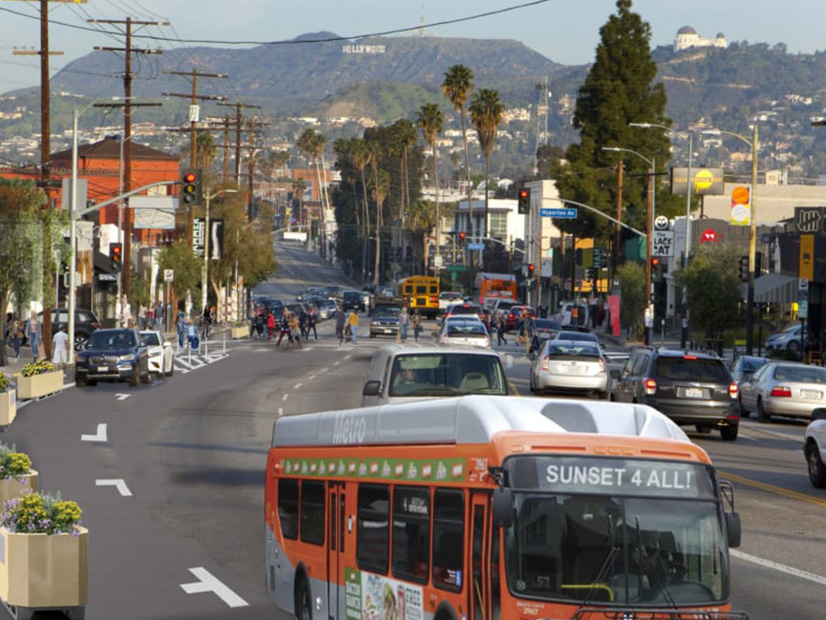
The California Air Resources Board has started designing a program that will distribute up to $10 million in incentives for the purchase of electric bicycles.
Funding for the program is included in the state budget that the governor signed in July. CARB was directed to establish the program by July 1, 2022.
CARB held a workshop Monday to hear from the public on how to implement the e-bike incentive program.
Questions yet to be answered include the amount of the incentive, who will be eligible and what types of e-bikes will be included in the program. The amount of the incentive could vary based on a recipient’s income, CARB staff said.
Up to 10% of the project’s funding may go toward related programs such as safety education. One suggestion from CARB was to require individuals to complete a safety training course in order to be eligible for an e-bike incentive.
Some workshop attendees opposed a safety-training requirement, calling it a “double standard” since California offers rebates for electric cars without a similar requirement. One idea was to make the safety training optional, but offer an incentive such as a free helmet to those who complete it.
Online Sales Debated
Another question CARB raised is whether the program should require the purchase of an e-bike from a brick-and-mortar store to qualify for the incentive.
Some workshop attendees said the requirement would be a way to support retailers hard hit by the COVID-19 pandemic. But others said the selection of e-bikes might be more limited at a conventional retail store.
And someone interested in buying an e-bike might not have a way to get to a retail store selling the bikes, others said.
Another issue is that someone who buys an e-bike online might have trouble finding a place to get the bike serviced. One suggestion was to require online sellers to partner with a brick-and-mortar service location.
Even if e-bikes purchased online were eligible for the incentive, one person said, the program could require the seller to be based in California.
Another concern discussed during the workshop was that someone could use the incentive toward the purchase of an e-bike and then immediately sell it.
“People will absolutely buy $5,000 e-bikes designed for recreation/trail riding then flip them on the secondary market,” one participant said in an online comment, which suggested restricting the incentive to “utility” e-bikes.
Another participant said it’s irrelevant if the e-bikes are resold.
“How much does enforcement really matter to our climate goals? A sold e-bike is still going to be reducing [vehicle miles traveled],” the participant said.
One workshop participant noted the need for secure storage of e-bikes. People living in apartments or mobile homes might have the greatest need for an e-bike but lack a safe storage spot, the participant said.
GHG Reductions
The e-bike incentive program had been proposed in Assembly Bill 117 introduced in December by Assemblywoman Tasha Boerner Horvath (D). The California Bicycle Coalition (CalBike) sponsored the bill.
After the bill stalled in the Senate, the e-bike incentive program was rolled into the state budget for fiscal year 2021/22.
According to CalBike, 60% of all car trips in California are 6 miles or less. E-bikes can be used for commuting, running errands and other short trips, proponents say.
CalBike Executive Director Dave Snyder said California’s focus has been on electric cars. But e-bikes “can be the centerpiece of California’s strategy to replace gas-powered car trips to reduce air pollution and greenhouse gas emissions,” Snyder said in a news release.
The price of e-bikes generally starts around $1,000. But “safe electric bikes of respectable durability” cost from $2,000 to $5,000, CalBike said.
CARB’s e-bike program will join other incentive programs offered in the state.
Peninsula Clean Energy this year launched an “E-Bikes for Everyone” program, which gives a discount of up to $800 to San Mateo County residents who buy an e-bike at a participating shop. Income restrictions apply.
Sonoma Clean Power offers a $1,000 incentive to income-qualified customers for the purchase of eligible e-bikes at participating retailers.
CARB plans to host a second workshop on the e-bike incentive program, although a date has not been set.



